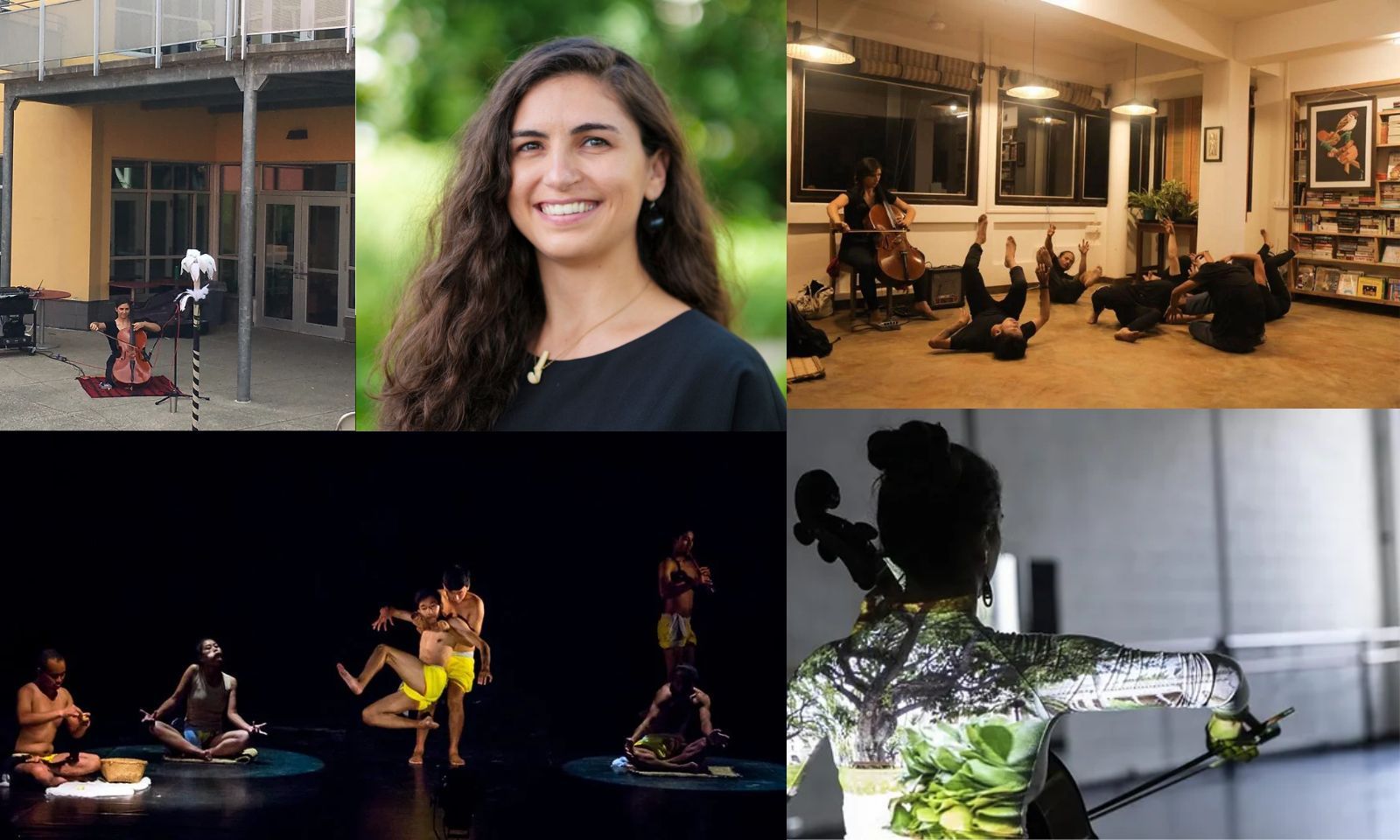

Artists and educator Nāwāhineokala'i Lanzilotti is embarking on a journey of sensory decolonisation.
Photo/Nāwāhineokala'i Lanzilotti/Edited
Artist’s exploration of decolonisation through the senses
Hawai'ian multi-disciplinary creator and educator Nāwāhineokalaʻi Lanzilotti is researching indigenous people’s relationship with the land, music, dance, and voice.




Inked across lands: How Pacific tattoo art is thriving in Germany

US funding cuts threaten to 'dry up' future of Pacific scientists - expert




Inked across lands: How Pacific tattoo art is thriving in Germany

US funding cuts threaten to 'dry up' future of Pacific scientists - expert
Decolonising through the Pacific to India and back again.
Nāwāhineokalaʻi Lanzilotti is a Kanaka ʻŌiwi (Native Hawaiian) from Mānoa, Oʻāhu in Hawai’i who facilitates creative acts of decolonisation to connect and amplify indigenous voices, focusing on Pacific communities.
Lanzilotti has a Masters of Arts in Ethnomusicology and a Master of Fine Arts in Experimental Sound which emphasises on indigenous performance.
She founded the international collective of musicians Pulse Oceania in 2023, and this year was selected for the Culture of Health Leadership Institute’s 18-month leadership programme aimed at supporting artists who are advancing racial and health equity in their work.
She spoke with Inangaro Vakaafi on Island Time about how her academic studies led her to collaborative work in India and taking those learnings back home to Hawai’i to advance Kānaka Māoli sovereignty.
Learning about the idea of decolonisation came from studying towards her degree and she found it resonated with her hula background, in particular the process of being guided by the senses called Kīlo.
“Our stories that have been passed down, our epics and our chants. These are all scientific records of how our ‘āina, our land works.
“This deep relationship that we develop from our senses and our land and observing and understanding how the winds work, how our volcanoes work, how our medicines come from the plants. That's all from this very physical engagement with our bodies.”
Watch the full interview with Nāwāhineokala'i Lanzilotti on Island Time below.
Lanzilotti has been surrounded by creative expressions since birth as she was raised by an artist mother with The Oahu Contemporary Arts Museum as her playground, she’s also a hula practitioner, and plays the cello.
Her whole life has been a balance of European-influenced art and ancient Hawaiian tradition.
So rather than approaching conversations around decolonising through the physical involvement and repercussions of sometimes violent processes that affect wider communities, she pivoted to focus internally on the individual.
“How do we understand decolonisation in our bodies? And from that, then I led to, okay, how do we understand decolonisation in our senses? How do we decolonise our bodies? How do we decolonise our senses?
“So I started writing out in this thesis, it's basically outlining this process of through each sense, how can we use our senses to explore and guide our research for a deep inquiry?”
Expressing and exchanging ideas in India
Having lived in India for seven years, Lanzilotti developed and implemented a curriculum in music education for the NGO Shubhendra & Saskia Rao Foundation in New Delhi.
During her time there, she also worked with a theatre company who created a dance vocabulary based off of their traditional martial arts influenced by contemporary and tribal dance forms from around the world.
“I realised when we started working together, we were interested in exploring the same things. We were interested in how we connect to land and the questions about language revitalisation, cultural revitalisation, questions around indigeneity and celebrations of our cultures within a contemporary expression.”
In 2019, the time came for her to return back to the motherland and ensure Kānaka Māoli have more opportunities to exchange with indigenous and global artists.
“We have so much to share and so much to learn from one another.
“Often when I was in ethnomusicology, the trend was to kind of write as an authority on a subject, which I think is still common in the ways that we train in academia.
“But I was really interested in how we can have communities speak for themselves in order to have them kind of reclaim their own narratives.”

A culturally academic impact
Now, Lanzilotti is on a professional exchange in Aotearoa to advance relationships and professional goals, connecting with artists and festival creatives to learn from the deep cultural work by Māori and Pacific people.
She says creative expression is acutely nuanced, so she sees her role as also opening doors to allow the freedom of expression.
“Right now we have fewer than 50 percent of Hawaiians actually living in Hawai'i and the rest are in diaspora throughout the world. And that's just because the house cost of living is so high and it's so hard for us.
“But I really believe that the health of our creative communities is really directly linked to our future sovereignty and the future health of our communities across the Pacific, across the world.
“If I can find a way to play a small role in creating more spaces for our communities to thrive creatively then I'd be very happy.”